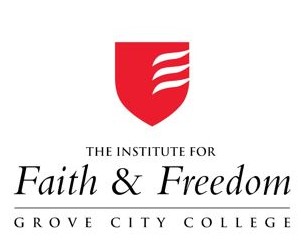Core Contradictions in MAGA World?

A glaring contradiction flourishes at the very core of the MAGA worldview. As a result, the most ardent admirers of former President Trump passionately affirm two simultaneous propositions that can’t possibly both be true.
On the one hand, Trumpian true-believers insist that his presidential record demonstrates singular success in “draining the swamp” and “making America Great Again.” Defying all odds, he vanquished Washington’s arrogant elites and kept the most meaningful promises to his previously downtrodden and disregarded base.
On the other hand, the overwhelming majority of those who supported his re-election bid also believe that a cabal of globalist traitors and malevolent media moguls managed to reverse the victory Trump so richly deserved, perpetrating the first, outright “stolen election” in presidential history.
If Trump succeeded so conspicuously in restoring American greatness, how could his ruthless adversaries in politics and the press retain the power to defy law and logic, overcoming the will of the people and deposing an incumbent who actually won by landslide margins?
And if, in fact, the America of 2020 remained such a corrupt and miserable mess after four years of Trump’s inspired and inspiring leadership, how could that record be deemed a meaningful and sweeping success?
In other words, history may record the 45th president as a triumphant victor or a pathetically swindled victim, but is hard to imagine how he could qualify as both.
Of course, Trump himself sees no contradiction in the contrast between his heroic, reformist service as president and the disastrous aftermath of the contested November election, brought about entirely by the allegedly shameless chicanery of the other side. But if the Democrats deserve exclusive blame for “rigging” the 2020 election, doesn’t it make sense that the GOP, which actually controlled the federal government for the four years preceding the balloting, should at least share culpability? That’s especially true when the six most hotly disputed states in the final tally – Pennsylvania, Michigan, Arizona, Georgia, Nevada, and Wisconsin – all boasted GOP control of at least one branch of state government for at least half the period between elections.
In fact, Trump had been complaining about fraudulent voting and falsified counts both before and after the close 2016 contest that originally placed him in the White House. During the first weeks of his term of office (May, 2017) he established, with much fanfare, a “Presidential Advisory Commission on Election Integrity” chaired by Vice President Mike Pence and featuring distinguished political figures of both parties. Trump indicated his intention to find evidence supporting claims of up to 3,000,000 illegal immigrant voters, blamed by the president for Hillary Clinton’s popular vote victory. But after seven months of squabbling, and threats from Congressional opponents to block continued taxpayer funding, the President disbanded the Commission at the beginning of 2018 and abandoned his heavily-hyped project with no finding of fraud of any kind.
It’s worth noting that even after this misbegotten adventure, Trump maintained control of both Houses of Congress – with a significantly larger margin in the House and a slightly better Senate advantage (51 to 49 seats) than Biden enjoys today. He entered the White House with his party in stronger control of both houses than any newly elected Republican since Dwight Eisenhower in 1953.
In that context, it’s impossible to finger Democratic obstructionism as the sole reason that Trump and his party made no significant moves toward fighting the charges of electoral fraud that continued to obsess him after the collapse of his grand but feckless commission. In fact, the frustrated quest for evidence for rigging in the election of 2016 – which he won – actually set the pattern for the ongoing search for proof of cheating in the election of 2020 – which he incontestably lost. In his acceptance speech to the Republican Convention in 2016, Trump famously promised: “I alone can fix it.” When it comes to the issue of election integrity, the ongoing agony surrounding recent voting issues proves that he fixed nothing.
The other contradictory contention of the MAGA minions runs into its own insurmountable wall of facts and fundamentals that mere wishful thinking can’t surmount. Those who supported him for president – especially those who did so twice – prefer to believe that Trump’s presidential achievements on behalf of his faithful really did amount to “promises kept” and put an end to “the American carnage” and economic suffering that he decried in his inaugural address. “For too long,” he declaimed, “a small group in our nation’s capital has reaped the rewards of government while the people have borne the cost…Politicians prospered but the jobs left and the factories closed. The establishment protected itself, but not the citizens of our country… The wealth of our middle class has been ripped from their homes and then redistributed all across the world…That all changes, starting right here and right now…”
But it didn’t change, at least in the minds of most working-class American voters who gave Trump a minority of their support after his service as president, just as they did before he took office. Among the slightly more than a third of American households who earn less than $50,000 a year, Hillary Clinton won a decisive victory, with 53% support to Trump’s 41%. Four years later, exit polls showed that despite all the speculation of blue-collar brigades rallying to the Trumpian standard, Joe Biden won lower middle-class voters by a remarkably similar margin, 55 to 41% gap. At the time, Americans saw the country “headed in the wrong direction” by a two-to-one margin, though the numbers turned (sharply but briefly) in a more optimistic direction after Biden’s victory had been confirmed.
The pendulum may well swing again if Republicans win their widely predicted Congressional victories this November, and Washington makes a new try at the divided government that worked so well for Presidents Reagan and Clinton and, to some extent, Obama.
But looking even further forward to the campaign of 2024, Trump supporters need to resolve their clashing impulses and decide whether they want to back him out of gratitude for his perceived victories or out of sympathy or a quest for revenge concerning his purported victimhood. Either way, a third Trump campaign promises even more generous doses of conflict and contradiction, confusion, and misinformation, for an exhausted electorate that’s already suffered more than enough from all of the above.




















